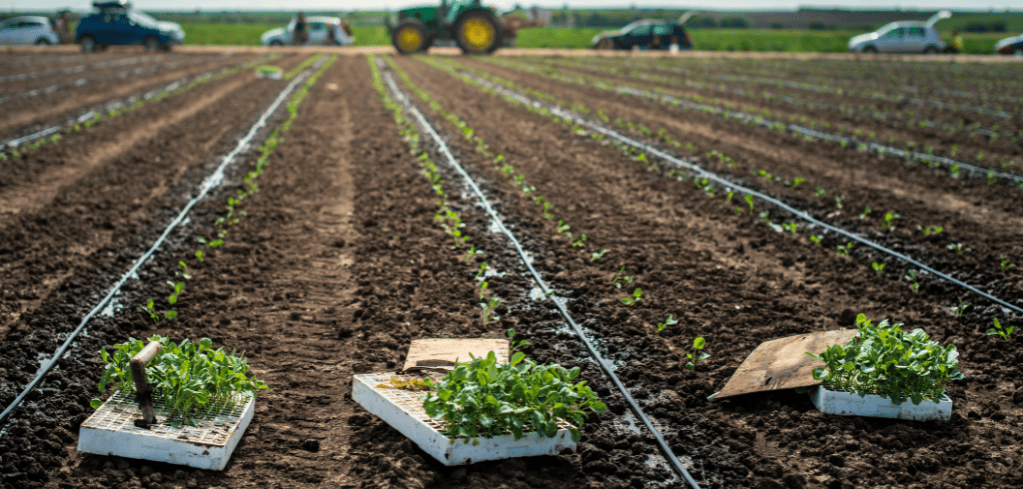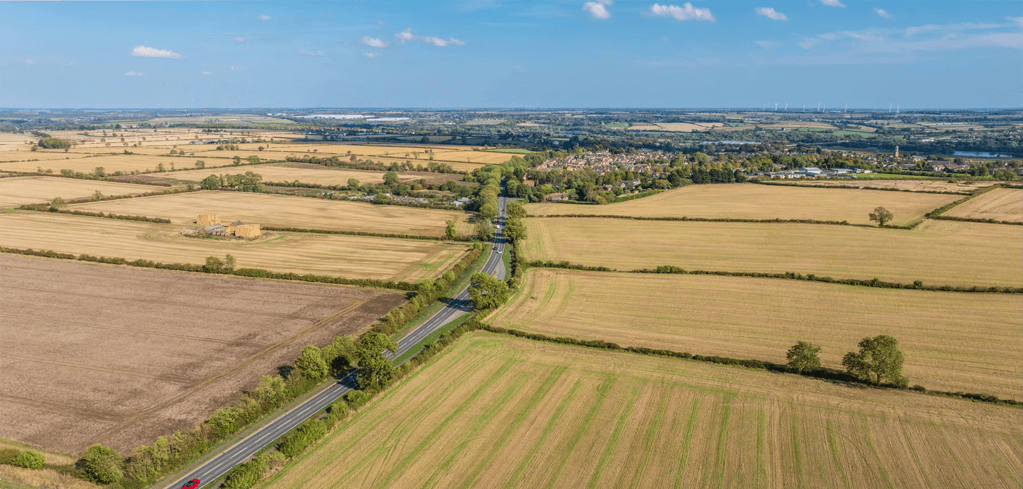
News in brief: August 2024
Tailored newsletters for you
Sign up to our newsletter to receive further information and news tailored to you.
A new Labour government took the helm early in July and, as the end of Summer Recess approaches, the industry waits for further clarification on its plans for farming. But for now, the focus is on harvest; weeks of heavy rainfall were finally replaced (mostly) by a long-awaited summer, giving farmers the conditions they desperately needed after a particularly stressful year.
New government promises to address low confidence
As new research reveals that half of farmers don’t feel positive about their future in farming, the new Labour government has announced its intention to provide stability for the sector. The latest Farming Opinion Tracker for England shows that out of those farmers saying they are making changes, a quarter of plan to reduce the size of their businesses and 14% plan to leave farming in the next three to five years. Secretary of State for Environment, Food and Rural Affairs, Steve Reed, said: “The new government will restore stability and confidence in the sector introducing a new deal for farmers to boost rural economic growth and strengthen food security alongside nature’s recovery. We will protect farmers from being undercut in trade deals, make the supply chain work more fairly, prevent shock rises in bills by switching on GB Energy, better protect them from flooding through a new Flood Resilience Taskforce and use the government’s own purchasing power to back British produce. The work of change has now begun.”
SFI update
The latest update to the Sustainable Farm Incentive (SFI) arrived on 5 August, announcing changes to several actions. With the guidance now amounting to 427 pages, the latest version attracted some criticism that the scheme is too complex. However, the NFU welcomed the changes, in particular Defra’s decision to make the legume fallow option rotational. “This is good news and will not only provide a payment but give arable farmers greater flexibility to produce food alongside delivering for the environment – helping soil health and provide food for wildlife. However, farmers will be unable to graze livestock,” says NFU Deputy President David Exwood. Another key change was the removal of the ability for agreement holders to upgrade their agreements after a year if they want to include new actions.
Call to increase farming budget
The Country Land and Business Association (CLA) has called for the agriculture budget to be increased to £3.8bn a year by 2027/28. The budget has stayed the same since 2014, despite spikes in inflation, an increasing focus on environmental challenges and international events reframing the importance of domestic food security. CLA President Victoria Vyvyan says: “Landowners can feed the nation and improve the environment – but they can't do it on a shoestring budget. Now is the time for a budget reset. Without the right economic, regulatory and political conditions, farmers will be unable to deliver on the multitude of societal demands that ultimately fall on them.”
£800m boost to rural broadband
Up to 312,000 rural homes and businesses are in line to receive a ‘lightning-fast’ internet speed upgrade thanks to a £800m fund announced by the government. Farmers in harder-to-reach areas will finally get access to some of the fastest connections available thanks to a deal with telecoms provider Openreach. Wales, the region with the lowest percentage of gigabit coverage, will also benefit for the first time. This represents one of the biggest milestones in the rollout of Project Gigabit, which targets places too expensive for providers to reach in their commercial build and which would otherwise be left behind with poor digital infrastructure. Minister for Digital Infrastructure Chris Bryant said: “Far too many rural citizens and businesses are still stuck with outdated internet infrastructure, not being able to fulfil day-to-day tasks as easily as people living in our towns and cities. We have been clear we want to achieve sustained economic growth in every corner of Britain, and this starts by ensuring our communities have the infrastructure they need to thrive.”
Cost of rural crime soars
The cost of rural crime in the UK climbed to £52.8m in 2023, up from 50.6m the previous year. GPS unit thefts alone rose by a huge 137% to an estimated £4.2m and increases have also been observed in quad bike, ATV and livestock thefts. Farm animals worth an estimated £2.4m were severely injured or killed in dog attacks in 2023, up nearly 30% compared to the previous year. “It is evident that rural crime is becoming increasingly organised and ever more sophisticated, with examples of criminal gangs using technology such as drones to identify and scope out targets,” says Jim McLaren, NFU Mutual Chairman.
Tribunal decision paves the way for 130% increase in rent for masts on farmland
Telecommunications operators have been told they must increase the rent they pay landowners for rural mast agreements by more than 130%.
The Upper Tribunal (Lands Chamber)* has ruled in favour of increasing the standard rental value of an “unexceptional” rural greenfield mast site from £750 per annum to £1,750, in a decision published late July.
Many landowners felt the previous reform of the Electronic Communications Code in 2017 was too heavily weighted in favour of telecoms operators who argued changes were needed for them to continue to invest in the improvement of the UK’s digital infrastructure.
The trial related to the renewal of a lease of a greenfield rural mast site at Vache Farm near Chalfont St Giles in Buckinghamshire.
Operators EE and Hutchison 3G are the tenants at the site, with AP Wireless II (UK) their immediate landlord.
Paul Williams, Head of Telecoms at Carter Jonas, was appointed as the expert valuation witness for AP Wireless, and gave evidence to the tribunal.
He said: “This outcome moves the dial from the decision that was handed down by the Upper Tribunal in a case known as Dale Park in December 2020. That, and a subsequent decision in 2022 (Pendown Farm), suggested that a rental value of £750 was appropriate for what were considered to be “unexceptional rural” telecoms sites.
“Since the Dale Park decision, £750 per annum had been presented by telecoms operators to landowners as a fait accompli.
“If landowners objected, or challenged that figure, their only recourse was via tribunal at great risk and expense.
“Not only did the tribunal agree that the Dale Park decision needed to be looked at again, but it also informed us that the door isn’t shut if new evidence which does not offend the statutory basis of value for telecoms emerges. Aside from market evidence, the tribunal also sent a clear message that inflation should apply, including to those for other site types, such as rooftops.”
“This will make a huge difference to many landowners who host telecoms sites, especially in rural settings, where the tribunal was persuaded that a greater-than-inflation increase should apply,” Mr Williams said.
“This isn’t about extracting huge amounts of money from the operators; it's about receiving a payment that is reasonable for the rights that are being granted, and the burdens that inevitably come with hosting telecoms, rather than a less intrusive tenant, or more passive use.”
Tailored newsletters for you
Sign up to our newsletter to receive further information and news tailored to you.

